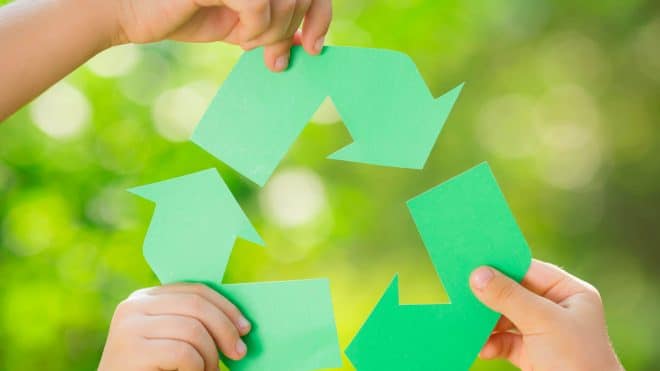You‘ve probably heard that recycling has a positive impact on the world we live in, since it turns waste into reusable material. But have you ever wondered why recycling is important and how it benefits us all? To give you a better idea, here are the numerous benefits of recycling:
Benefit #1: Recycling saves energy
Did you know that it takes considerably less energy to process recycled materials than processing raw materials? For instance, using recycled aluminium waste to make aluminium cans uses 95 per cent less energy than making new aluminium cans from raw materials.
In fact, according to the U.S. Environmental Protection Agency, recycling just one tonne of aluminium cans saves 209 million British Thermal Units (Btu). Since there are 5.8 million Btu in a single crude oil barrel, the savings would be equal to 36 crude oil barrels.
Benefit #2: Recycling protects the environment

Recycling lessens the need to extract (e.g. through logging, mining and quarrying) and process raw materials. As you know, excessive extraction of raw materials hurts ecosystems and processing them causes air and water pollution. By reducing energy in processing raw materials through recycling, we also cut down on greenhouse gas emissions from industrial plants, which use fuel that produces pollutants during production. Furthermore, recycling non-biodegradable wastes like plastics, ceramics and foams will help reduce air pollution, which harms the ozone layer.
Here’s an interesting statistic: current recycling efforts in the U.K. saves approximately over 18 million tonnes of carbon dioxide a year, which is said to be comparable with taking 5 million vehicles off the road.
Benefit #3: Recycling conserves natural resources
By using materials more than once, we conserve natural resources like minerals, plants, water and even land. If we recycle paper by reusing them, we save trees and water. For example, making one tonne of paper from recycled materials would save up to 17 trees, and the process would save 50 per cent less water. If the used materials are not recycled, we turn to extracting our rapidly depleting raw materials through mining and logging.
Benefit #4: Recycling reduces landfills
The many negative effects of landfills include:
- Soil contamination
- Emission of methane gas, which is more potent than carbon dioxide
- Harbouring causes of disease like flies and rats
- Pollution of the environment
- Damage to roads by heavy vehicles, which are used for transporting wastes to landfills
By recycling, we can reduce the amount of waste placed transported to landfills because we can reuse the materials. Paper, in particular, takes more time to decompose than organic wastes, causing landfills to fill up quickly and lessen the space for non-recyclable waste.
Benefit #5: Recycling saves money
Notice how products made from recycled materials are cheaper than products from fresh materials? Since the production of recycled materials conserves energy and raw materials, businesses also save money. In households, using food wastes for fertilising plants, which in turn can be used to produce even more food, would save you money and trips to the store.


